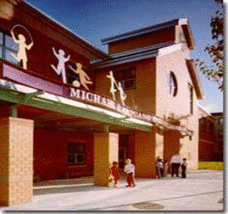By Julia Fairclough Parents and school committee members alike opposed the idea of charging an annual $2,800 fee for preschool education, stating that receiving an additional $259,200 in revenue to aid an ailing city budget would be offset by the damaging negatives, of which there were many. The school committee called a public hearing on Monday night at the high school library to float a proposal to charge parents an estimated $16 per day for SMILE or the Early Childhood Intervention Program (ECIP), or $2,880 per year. Afterschool care is available until 5:30 p.m. to preschool students at a rate of $25 per day. If you add the new $16 per day fee, the proposed total then would reach $41 per day for those children who are in school nine hours a day. The city would receive $259,200 in revenue from 90 full-pay students ($2,800 each) or about $129,600 if there was a sliding scale option. The proposal will go before the school committee this Monday night for a final vote. "We talk about core values of the schools, and being able to offer free preschool is one of our core values," said Adam Sweeting, Ward 3 school committee member. "We should continue to do this with a pride of which we should embrace." The city has worked hard for it's good reputation for offering early childhood education, he added. Ward 6 Committee member Paul Bockelman agreed. Preschool, more than any other level of education, has the most impact on children, he said. But he acknowledged that the city faces a troubled economic future. "If we are looking at increasing class size or more layoffs, I hope that we don't regret that we could have raised a quarter of a million dollars by adding a fee for preschool," he said. Then, addressing Mayor Joseph Curtatone, "When it comes to budget time, we will remember your impassioned speech." Curtatone, who spoke up as a parent and not the mayor, said he has a child in the SMILE program. He added the programs are not in financial jeopardy and the city has worked hard to cut costs to keep programs like this free to parents. He questioned whether a sliding scale was equitable, what other increased costs the city faces, and what if a family has to cut back on healthy food choices or sports program just so that they could afford preschool? "This is also a value statement," Curtatone said. "Our job is to improve the quality of life for people. I want to keep families here in the city and I want them to go to our public schools." Curtatone added that he is proud to say that the city has not charged-like many other Boston area cities-for preschool. The tax players have stepped up to the plate on this one. Kelly Demers, whose children went through the SMILE program, said that she opposes the fee for three reasons. Offering free preschool sends the positive message that the city is progressive-minded. Second, she supports socioeconomic diversity in the public schools. And third, she is concerned that the cost of monitoring and negotiating a sliding scale fee would supersede any financial benefits the city would receive. It's also hard for parents to negotiate the system, what with all the acronyms and names of various programs, said Suzanne Bremer, another parent. Parents of preschool students are the most likely to be confused about choice and controlled choice, she said. Sliding fees invites more confusion. "In the past, Somerville has charged for extra curricular activities and I heard the results were dismal," Bremer said. "The perils of these times is to pit one group against another." Alan Ball has a three-year-old and is just talking about long-term schooling options. If Somerville incurs a fee for preschool, he would reconsider whether he wanted to put his child into this school system. Ball's comment invoked some passion about keeping parents and their children in Somerville. "I don't want anyone to tell me that they are thinking of Somerville," said Teresa Cardoso, Ward 2 school committee member. Ward 7 School Committee Member Mary Jo Rossetti said that she first raised the fee proposal during last year's budget meetings, considering the school budget comprises a third of the city's overall budget. "We have not charged for anything in a long time," Rossetti said. The preschool program cost the city a total of $1.9 million (of which includes $732,000 for ECIP, $735,000 for SMILE, $396,000 for administrative and programs, and $38,000 for supplies). The program is funded through IDEA grants ($412,000), Title I grants ($530,000), and local appropriations ($958,000). The per-child cost is $8,700 for ECIP and $5,600 for SMILE, according to Tony Pierantozzi, Somerville's school superintendent. There are 39 students in the ECIP special education, 36 in the regular education, and 143 in the SMILE program. Seventy students are eligible for free lunch, and another 20 for reduced lunch. That would leave a balance of 90 students who would face a tuition charge. Part of the funding problem rests with Title I monies, he said. Title I used to pay for the bulk of preschool programs, but things have changed. Title I Federal funds target low income children and those students in grades one through eight who need remedial services. So the city has been shifting Title I funding away from early childhood programs and will continue to do so, he said. The city must then lean more on local appropriations to fund preschool, Pierantozzi said, as it has been doing over the past few years. |
|||













Reader Comments